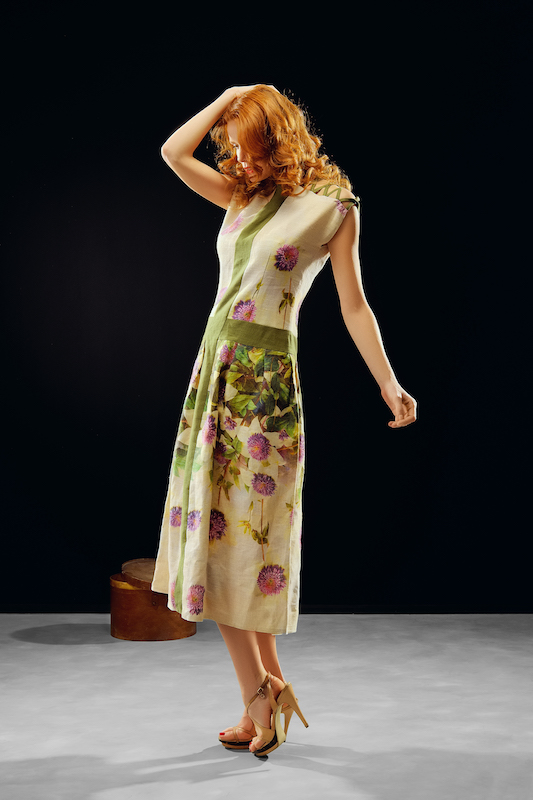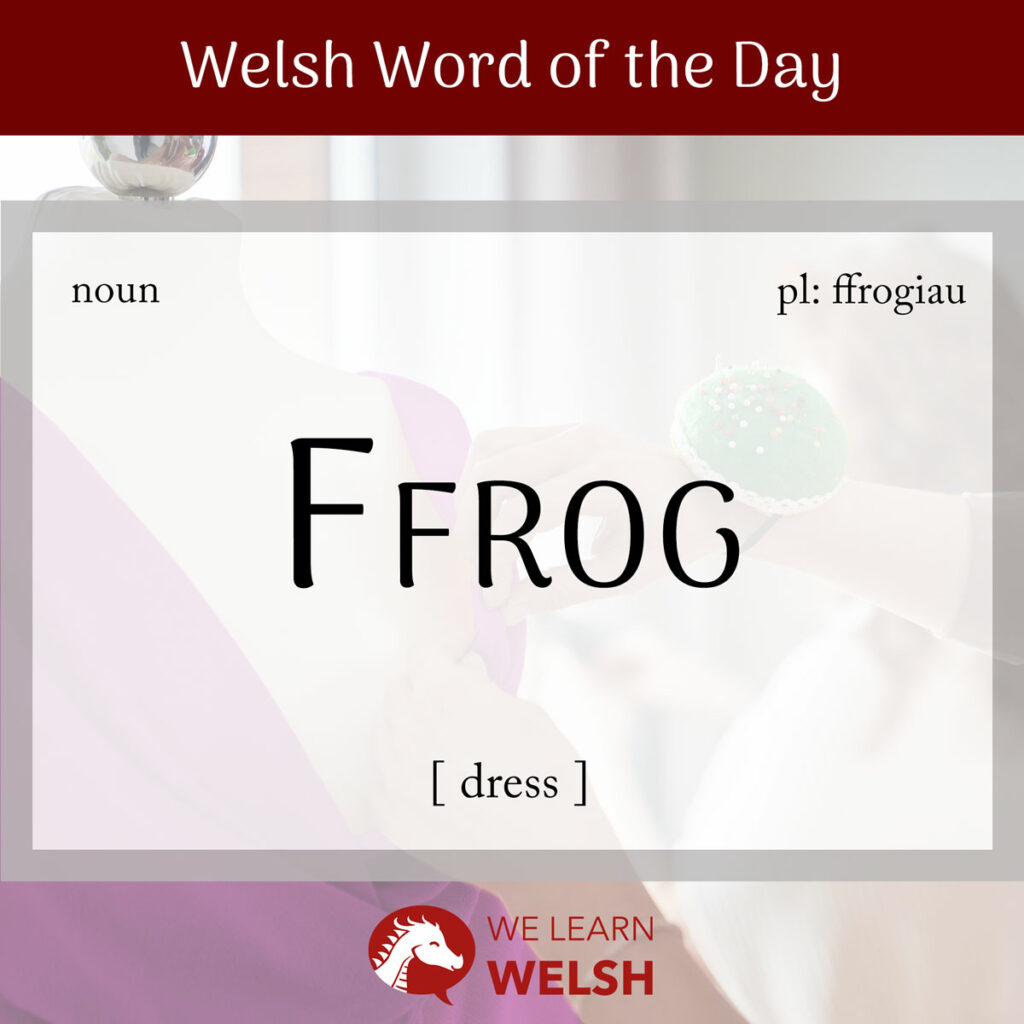Personally, I’m someone who always wears trwsus (trousers) and could never be caught in a sgert (skirt). In general, I’m not the most benywaidd (feminine). So one of the most reliable ways I can make my friends laugh is to pull out an old picture of me in a girly ffrog!
If you haven’t guessed, the Welsh word for dress is ffrog. Ffrog is a feminine noun, likely because ffrogiau (dresses) have traditionally been associated with menywod (women) and merched (girls).
ffrog
dress
ffrogiau
dresses
Ffrog doesn’t mutate itself, but remember that since it’s a feminine noun, it does cause a soft mutation to adjectives that follow it. For example, a pretty dress is ffrog bert, even though the word for pretty is technically pert.
Of all the Welsh words, this one often sounds a bit silly to English speakers at first – since it’s pronounced pretty much exactly like frog, which in Welsh is actually broga or llyffant.
But it makes more sense than you might think! Ffrog comes from the English word frock, which is less used these days but is an alternative word for a dress. Some early recordings of this word in Welsh actually have it written as ffroc, highlighting the connection to the English word.
In fact, it’s a very common pattern in Welsh for words describing clothes to have been borrowed from English. I already mentioned trwsus and sgert, and there’s also siwmper (jumper), cot (coat), blows (blouse) and jîns (jeans). You have to wonder what the Welsh were wearing before the Anglo-Saxons came along!
Na chei, chei di ddim ffrog newydd.
No, you can’t have a new dress.
A good definition of ffrog which also reveals some other useful vocabulary is the one provided by Geiriadur Prifysgol Cymru (Wales’ University Dictionary) – dilledyn uchaf a wisgir gan ferch (an upper-body piece of clothing worn by a girl).
Dilledyn is a fun, although slightly old-fashioned, Welsh word which means piece of clothing. It’s the singular version of the word dillad (clothes).
Wisgir is a soft mutated and conjugated form of gwisgo (to wear). This, of course, is the most important verb you’ll want to use with ffrog, although prynu (to buy) is perhaps a close second. Gwneud (to make), dylunio (to design), gwnïo (to sew), and trwsio (to mend) could certainly also come in handy, just as these skills are themselves pretty handy!
Dw i isio gwisgo fy ffrog werddlas newydd.
I want to wear my new turquoise dress.
If you want to use the word dress more generally, as in to mean clothing, you can usually use gwisg (an outfit / a costume) or just dillad. For example, formal dress is gwisg ffurfiol. People do sometimes use gwisg to mean a dress, too. Different people might translate a ballgown as gwisg ddawns (dance costume) or ffrog ddawns (dance dress) depending on where they’re from.
Here are some other kinds of ffrogiau you might want to talk about:
- ffrog briodas = wedding dress
- ffrog sidan = silk dress
- ffrog gotwm = cotton dress
- ffrog haf = summer dress
- ffrog binaffor = pinafore dress
- ffrog hir = long dress
- ffrog fyr = short dress
- ffrog mini = mini dress
In the last example, ffrog mini, you would normally expect a mutation, making it ffrog fini. However, I’ve personally only ever heard people say ffrog mini or even miniffrog – in general, mutation rules tend to be more relaxed with words borrowed from English, like the descriptor mini.
Gwisgais ffrog hir gyda phatrwm blodau i fynd i’r parti.
I wore a long dress with a floral pattern to go to the party.
Gwisg Gymreig draddodiadol (Welsh traditional costume) for women includes a particular style of ffrog, made of gwlanen (flannel) and decorated with stripes in dark, bold colours, often coch (red) or glas (blue). It would have been generally worn with a large wool siôl (shawl), a ffedog (apron), and of course the distinctive Welsh het (hat).
Even today, it’s very common for merched bach (little girls) to dress up in the gwisg draddodiadol (traditional outfit) for cultural events like Eisteddfodau, often with a cenhinen bedr (daffodil) pinned to the front to make it extra patriotic. I used to always complain about the scratchy fabric of the ffrog, but I’m definitely glad to have the pictures to look back on now.


